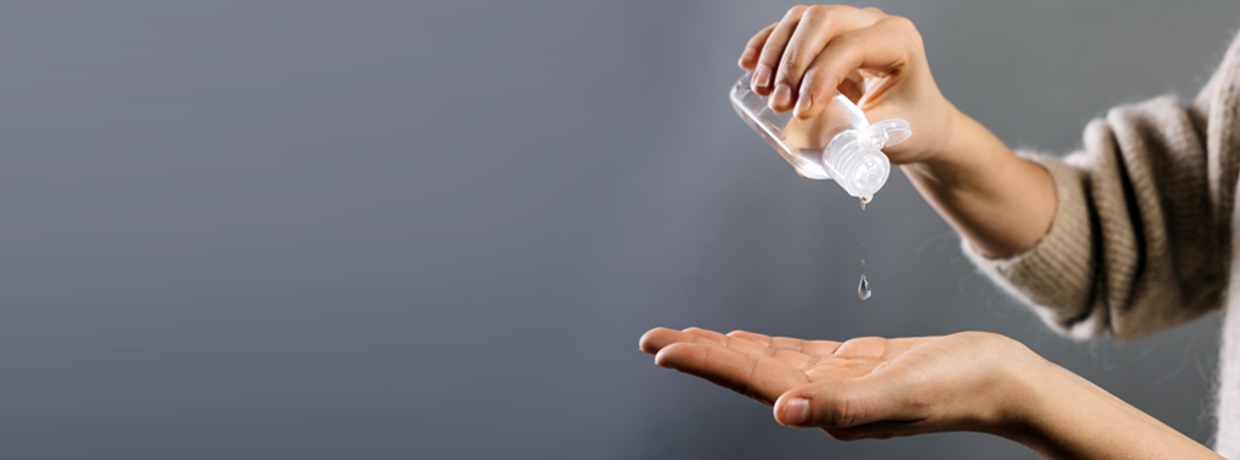Many within the industry have gone to extraordinary lengths to ensure they continue to operate through often challenging circumstances to maintain vital supply chains for crucial products. These items range from medical packaging, components for ventilators to sanitiser packaging and other antibacterial products.
Many have also had to radically alter their typical manufacturing schedules to produce essential products around the clock at speed, often introducing staggered shift patterns to minimise social contact. Many others have provided supplies to the NHS and other vital services at cost price, or in some instances free of charge, despite the pressures encountered on their own businesses.
With the Covid-19 virus globally taking root, political leaders, guided by public health experts, continue to advise the public on the best measures to halt the spread of this highly contagious virus.
Along with social distancing, a significant recommendation has always been thorough and regular washing of hands with soaps and sanitising gels to minimise the spread of the virus. As a result, consumers have come to rely on the convenience and reassurance plastic bottles of hygiene products such as liquid soaps or hand sanitisers can provide during the pandemic.
Sales of sanitiser packs have soared, with supermarkets and other retail outlets struggling to meet the additional demand, showing just how vital a role plastics play to society at large.
Because many plastics benefit from very high barrier properties, these incredibly versatile materials can contain significant levels of alcohol, making it ideal for personal hygiene products such as sanitising gels and liquid soap as previously mentioned.
As well as its beneficial barrier properties, plastic containers can also be manufactured quickly, which is particularly useful when public demand requires rapid solutions in urgent times of need such as those being experienced by everyone during the pandemic.
Lightweight, durable and safe to use and transport, plastic has the added flexibility to change from colour to colour and shape to shape, which is less achievable with alternative materials such as glass, which is also less energy efficient to produce.
Not only can plastics be moulded into limitless shapes and sizes, but they can also be made squeezable and flexible. This adaptability means products such as hygiene bottles are incredibly easy to dispense when combined with a host of plastic closure components such as spray and lotion pumps and screw or snap-neck options such as flip-tops and disc-tops.
With comparatively low production costs, plastics have become an essential commodity in the health care sector. During the pandemic, several manufacturers have diverted their usual product offerings to the making of crucial medical equipment to satisfy the current exceptional demand, with examples of innovative cross-industry collaborations to combat the virus.
For instance, during the pandemic, luxury auto brand Ferrari announced it was to produce the thermoplastic components needed for respiratory valves, while tech giant Apple, designed plastic face shields for medical professionals, shipping millions across the USA every week.
One could argue that plastics have undoubtedly gained a renewed appreciation during the COVID-19 crisis, highlighting several distinct advantages over competing materials.
Indeed, the adaptability of plastic to suit specific needs means it can be easily modified relatively quickly to new applications. Aso, the protective value of plastic for hygiene has been perfectly illustrated by the importance of medical protective gear.
With the gradual lifting of lockdown restrictions, there are still further hurdles to overcome as we all try to adhere to social distancing measures to avoid any potential future flare-ups.
Again, this is where plastics will provide another vital role to play in the fight against Covid-19. As society tries to get back to some normality, the protective qualities of plastics cannot be underestimated in helping keep us all safe. Many businesses, shops, schools and other environments that have been closed over recent weeks will gradually re-open and have to adapt to provide safety to those within them.
For example, the use of transparent plastic barriers, shields and other equipment will need to be installed in millions of such environments to help further minimise the spread of the virus. Again, the adaptability and convenience plastics provide will prove invaluable as we all try to gradually return to everyday life over the coming weeks and months.
One should also remember that when these incredibly valuable products have reached the end of their life, they are fully recyclable and can be repurposed into a new plastic bottle or recycled into a wide range of other useful products.
At a time of international crisis, we are in many ways dependent on the plastics industry to provide a wide range of solutions to ease public health concerns. From antibacterial bottles and dispensers to testing kits, ventilator components and other medical equipment, plastic has clearly shown its worth in difficult times like these.






